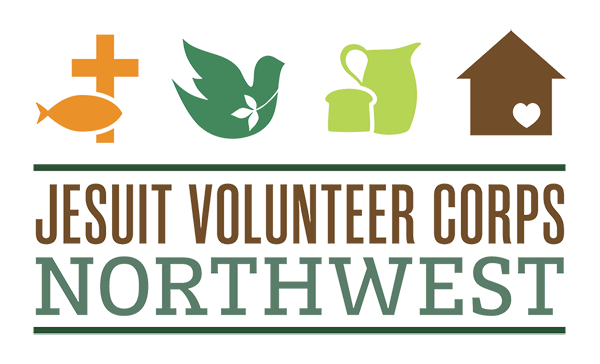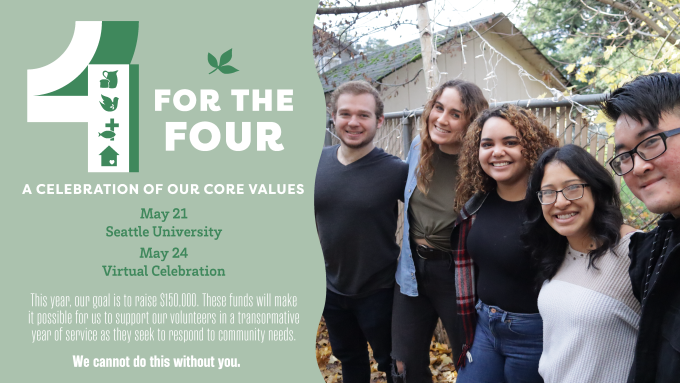A Fashion Statement to Make a Social Justice Statement
Our latest blog post is written by JV AmeriCorps member Lauren Pusich (Boise, ID ’15-16) who is serving as the Outreach Coordinator with Women’s and Children’s Alliance in Boise, Idaho. Below, Lauren shares her experience serving with survivors of sexual assault and organizing the Denim Day event, which challenges victim blaming and creates spaces for conversation.
A study by the Center for Disease Control shows that 1 in 3 women and 1 in 4 men have experienced rape, physical violence, and/or stalking by an intimate partner. Serving as a JV AmeriCorps member at a domestic violence and sexual assault nonprofit, I am keenly aware of how pervasive these issues are. In my placement at Women’s and Children’s Alliance (WCA) in Boise, I am constantly in the community discussing these issues.

In Ada County where I serve, law enforcement received 4,447 calls for services related to domestic abuse, sexual assault, and child abuse in 2015. I have not attended a single event where I have not had at least one person come up and identify as a survivor. You likely know someone who is a survivor themselves, even if they haven’t shared their story with you, or maybe you yourself are a survivor. Survivor stories are powerful and need to be heard because they are silenced far too often.
One way we can break the silence is through awareness days. In April, the WCA participated in one of the biggest awareness days in its history. April is Sexual Assault Awareness Month (SAAM) and Wednesday, April 27 was Denim Day. On this day, individuals were encouraged to wear denim to demonstrate the prevalence and detrimental effects of victim blaming in our society. Denim shows solidarity with an Italian survivor whose rapist’s conviction was overturned when the court ruled that the victim’s jeans were too tight. You can learn more about the history of the case and how Denim Day was established as a global awareness day here.
My service year has shown how often we place the blame on the survivor of an assault or abuse, rather than where the blame lies—with the perpetrator. There are countless cases of victim blaming; mentioning how if that person had just not drank, had not stayed in the relationship, not led someone on, or not worn that outfit, then they would not have been assaulted. With these thoughts, we end up re-traumatizing victims and do not hold perpetrators accountable.

Denim Day helps challenge victim blaming and creates spaces for conversation. One such space was at The College of Western Idaho (CWI). CWI’s Psychology Club hosted an open forum on sexual assault and victim blaming in partnership with the WCA for Denim Day. Attendees heard how victim blaming leads to under-reporting of sexual assault and unlike any other crime, sexual assault victims are more likely to be perceived as lying when they report. Two survivors in the audience shared their stories and how meaningful it was to see the community coming together to talk about these issues. Each time a survivor shares their story, I am reminded of why I choose to serve at the WCA and why I am so passionate about advocating for change. These stories need to be heard.
We need to create a culture where survivors feel supported when they decide to speak up and eventually prevent the need for WCA services. We need to challenge each other to end the cycle of silence around these issues and how we perpetuate victim blaming attitudes. We need to be there for survivors when they have the courage to speak up and share their stories. We need to have these uncomfortable, but necessary, conversations.

Overall, Denim Day was a huge success with 100 different businesses and organizations participating at 115 different locations not only locally, but across Idaho and even state lines. The JVC Northwest office even participated! Seeing the whole JVC Northwest team wear denim put a huge smile on my face. You can learn more about Denim Day 2016 at the WCA by checking out this newsletter article.
I look forward to participating in Denim Day each year until we no longer blame victims for something that is never their fault. Thank you to those survivors who have shared their stories with me not only on Denim Day, but throughout my year of service. You deserve to be heard, to be believed in, to be supported, and you are never asking for it. Serving as a Jesuit Volunteer continually reminds me how communities can come together to create change and how we can all challenge ourselves to live out social justice in our everyday life.

